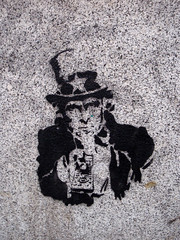
photo credit: Daquella manera
As America continues to recover from the “Great Recession,” we’ve heard a lot from politicians how federal spending was critical to preventing an even worse downturn. You’ll have to excuse us for being a bit skeptical. Now, however, you don’t just have to take our word for it.
Consider this new study that was just released by the well-respected National Bureau of Economic Research titled “Government Spending and Private Activity.” From the abstract:
This paper asks whether increases in government spending stimulate private activity. The first part of the paper studies private spending. Using a variety of identification methods and samples, I find that in most cases private spending falls significantly in response to an increase in government spending. These results imply that the average GDP multiplier lies below unity. In order to determine whether concurrent increases in tax rates dampen the spending multiplier, I use two different methods to adjust for tax effects. Neither method suggests significant effects of current tax rate changes on the spending multiplier. In the second part of the paper, I explore the effects of government spending on labor markets. I find that increases in government spending lower unemployment. Most specifications and samples imply, however, that virtually all of the effect is through an increase in government employment, not private employment. I thus conclude that on balance government spending does not appear to stimulate private activity. [emphasis added]
In a nutshell, increased government spending crowds-out the private sector. The so-called “stimulus” was good for government but not-so-much for the rest of the economy. Now America’s families are saddled with trillions more in debt and get to look forward to future higher taxes (or inflation) to pay for it. Isn’t it bad enough that the current “progressive” tax code already penalizes our families?

